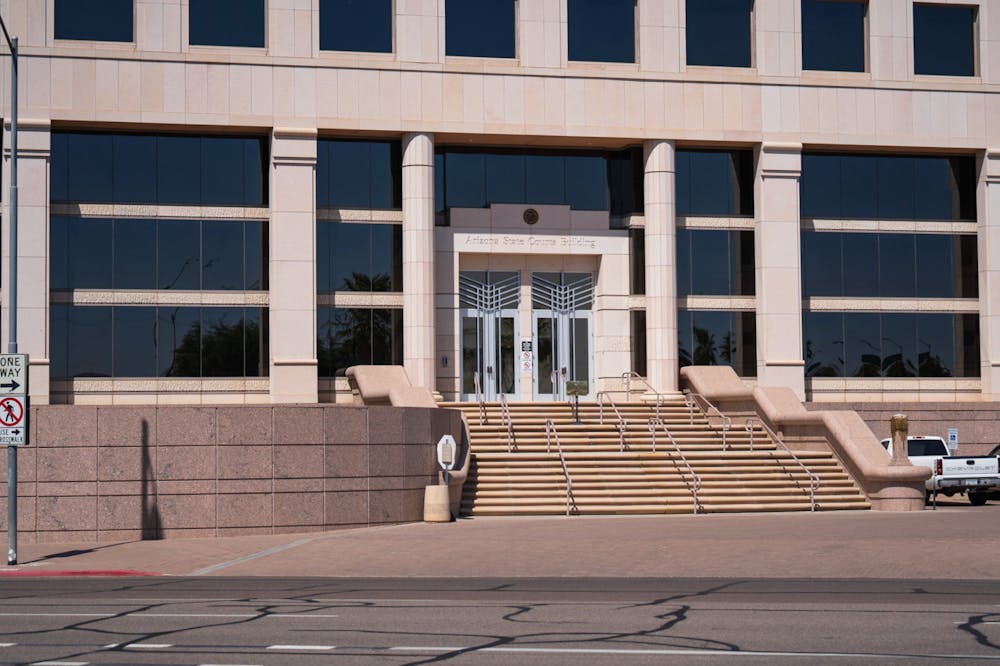Some students and faculty are concerned and confused about a proposition on term limits for Arizona Supreme court and Superior court justices, while others are unfazed about the potential impacts the changes could hold.
Arizona Proposition 137 will be present on the ballot early this November, offering an end to retention elections for Arizona Supreme Court and Superior Court justices and replacing them with terms of good behavior. Primarily, the proposition would offer a serious shift from the current judicial election system in Arizona, according toPaul Bender, a professor who specializes in constitutional law.
"Instead of facing retention elections, they (Arizona justices) would have life tenure, and they would be subject to be removed but only for particular offenses," Bender said. "And so we would change from a system of voter control."
Bender said the change is especially striking for a system which was not in need of any real adjustment. He also said the current process already succeeds in "changing the quality of judges."
"Why do you want to change the system?" Bender said.
However, others, like Erik Longenecker, a junior and fellow research assistant studying political science, said some flaws have emerged with the current Arizona system.
"If we get rid of retention elections, and we replace term limits with terms of good behavior, it'll build a better framework for judicial independence," Longenecker said. "And I say this because there will be less room, actually no room at all, for lobbyists to fund the campaigns of judges and justices."
Bender saw the merits in this argument for Proposition 137 as well. He said there is value in replicating the federal judicial system because the system upholds quality in justices through them being nominated by the president and confirmed by the Senate.
No matter the reasoning behind the decision, Longenecker said the proposition is sure to make serious impacts on the state of the judicial system in Arizona.
"Politics is going to impact the judicial system," said Longenecker. "The problem with Proposition 137 is that governors can choose who's nominated based on their views that most closely align with their own."
Valerie Hoekstra, a professor in the School of Politics and Global Studies, said the proposition was especially concerning given the current state of politics within the federal judiciary.
Hoekstra said recent events have demonstrated "that either liberal or conservative judiciary can insulate those policies for a very long time if they are insulated themselves."
For students however, there are concerns with stagnation in the judicial system if Proposition 137 were to pass.
Pranav Goyal, a junior studying computer information systems and finance, said the current system of retention election acts as a motivation for state Supreme and Superior Court justices.
"I think the elected system is better just because you are not guaranteed that position," Goyal said. "So you have to work for it, and hopefully you do something good."
These thoughts were also shared by Anderson Pillion, a sophomore studying biochemistry.
"I think it's always good to have rotation — definitely have different experiences of different people," Pillion said. "Because if you have one person there for a long time, they probably might get used to it. If they have rotation, obviously they're going to care if they want to be reelected."
READ MORE: What's on the ballot: A guide to Arizona's propositions for the November election
The value of voter input and pressure is agreed upon by Goyal, Pillion and Bender — who said that the value of voter participation had been a previous hallmark of the Arizonian judiciary.
Bender said with Arizona's reputation of maintaining an "active, direct democracy system," it was surprising for him to see a proposition that would take the responsibility of electing judges away from the people.
"To take a state that so heavily has relied upon voter input and to take that away from the judicial branch — you wonder, why?" Bender said.
Proposition 137 will be on the ballot on November 5, 2024, and Arizona residents can check their registration status here.
Edited by George Headley, Sophia Braccio and Madeline Schmitke.
Reach the reporter at sluba@asu.edu and follow @samluba6 on X.
Like The State Press on Facebook and follow @statepress on X.
Sam is a freshman studying political science with a minor in justice studies. This is his second semester with The State Press. He has also worked as editor-in-chief of his high school newspaper.




